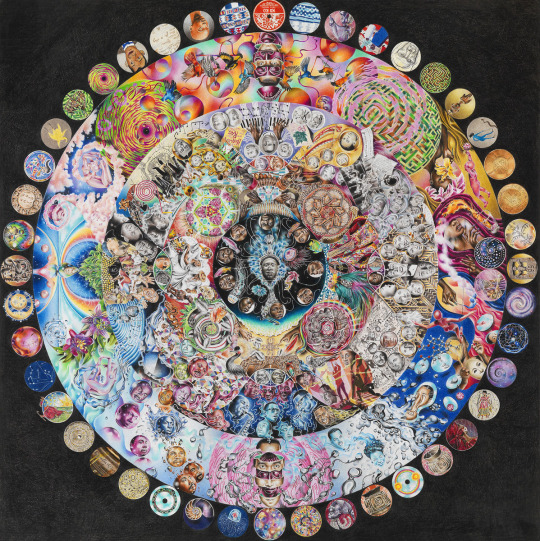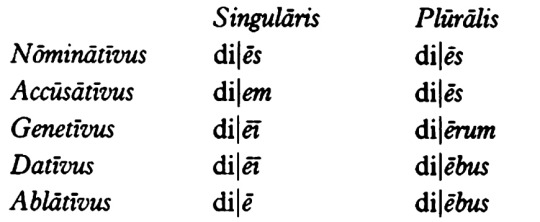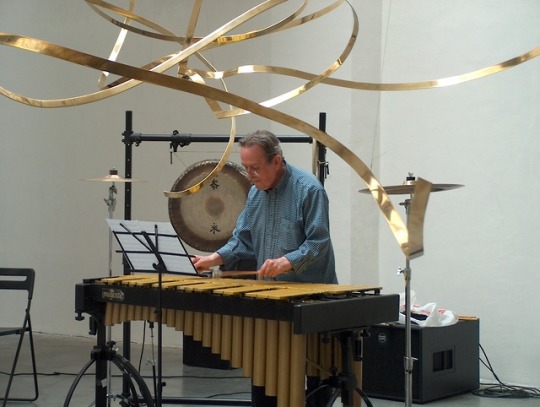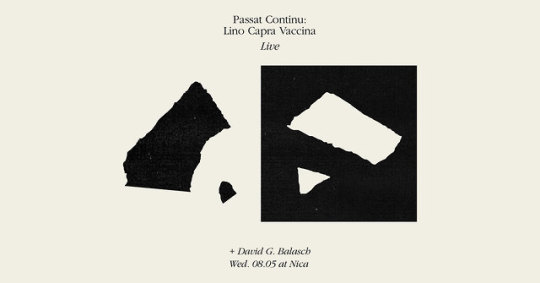#Aktuala
Explore tagged Tumblr posts
Text
youtube
aktuala -- mud
2 notes
·
View notes
Text
Blog post and linked up tracklist [HERE]
Tracklist
Light - A-side
Good Weather For An Airstrike - Mesopelagic (Self Released) Levi Patel - As She Passes (Nocturne) (Self Released) Hampshire & Foat - The Promise (Athens Of The North) Lani Hall - Sun Down (A&M Records) Aktuala - Dejanira (Bla Bla) Alela Diane - Lady Divine (Rough Trade) Joseppa & Musyl - Follow Me (Eskimo Recordings) Deodato - Also Sprach Zarathustra (Columbia) Family Four - En Hast Utan Namn (Eskimo Recordings) Master Phil - Waporday (Dreamtime Records) David Axelrod - Fantasy For Ralph (Mo Wax) Alice Clark - Looking At Life (BGP Records)
Dark - B-side
Ralf Hildenbeutel - Promenade (An Unpleasant Dream) (Touched) - Proceeds go to Macmillan Cancer Research The Green Kingdom - Momentary (Rusted Tone Recordings) Kutiman - Line 1 (Siyal Music) Hampshire & Foat - Rain Clouds (Athens Of The North) Mason Proffit - Everybody Was Wrong (Ole Smokey Edit) (Self Released) Simon & Garfunkel - The Sound Of Silence (T2MM Edit) (Self Released) Norman Greenbaum - Spirit In The Sky (Red Axes Remix) (Self Released) Harry Nilsson - One (RCA Victor) A Forest Mighty Black - Everything (Compost Records) Leifur James - Mumma Don’t Tell (Late Night Tales) Moby - Go (Solarno’s Lounge Attack Mix) (Self Released)
Download available via [Hearthis]
#mixamorphosis#dj mix#soundcloud#music#guest mix#Good Weather For An Airstrike#Levi Patel#Hampshire & Foat#Lani Hall#Aktuala#Alelea Dane#Joseppa & Musyl#Deodato#Family Four#Master Phil#David Axelrod#Alice Clark#Ralf Hildenbeutel#The Green Kingdom#Kutiman#Mason Proffit#Ole Smokey#Simon & Garfunkel#The 2 Mamarachos#Norman Greenbaum#Red Axes#Harry Nilsson#A Forest Mighty Black#Leifur James#Moby
0 notes
Audio
Nexus - The Call, For A New Life - vinyl edition of 2021 Italian experimental jazz release, now with cover art by Noura Tafache (available as a poster)
Since the early 1980s, the Nexus creature has represented one of the most interesting realities of the Italian jazz scene. Daniele Cavallanti (Aktuala) and Tiziano Tononi (Moon On The Water/D.o.m Alia Orchestra) realize a sensational mix of orchestral praxis and impro-free jazz. The strength lies in the ensemble's variety of timbres, in that precise hybrid of styles reminiscent of the cross-sectional experiences of the 1970s of Zappa, Henry Cow or Charles Mingus. Thus electrifying phrasing, the most hermetic breaks in the plot prevail, which are sublimated, however, in a skillful balance between recognizable themes and more radical instrumental drifts. The choral openings of the woodwinds and the more abstract rhythmic trajectories of Tononi's drums, the abrupt swings of the vibraphone and drums, and the confusing, sparkling inserts of the violin are the dominant features. The drama of the sound also touches more Spiritual-Jazz peaks, evoking the sad story of the slave trade. Noura Tafeche's lysergic cover represents the transatlantic journey and the sincretic history that gave birth to Jazz culture, this drawing takes its cue from the artwork of Mati Klerwein (Miles Davis, Santana).
The cover art:

The original release (more tracks than the vinyl):
The Call:For A new Life by Nexus
#nexus#black sweat records#italy#2021#2023#jazz#free jazz#experimental#Daniele Cavallanti#Tiziano Tononi
11 notes
·
View notes
Text
La krea tasko de la tago por la ludo #Mi_estas_ĉi_tie_eterneco. Vi havas la liberecon aliĝi al la ludo (kaj forlasi ĝin) kiam ajn vi volas. Sekvu vian scivolemon kaj faru la taskojn, kiuj vekas vian intereson. Kaj tiujn, kiujn vi ne ŝatas - ignoru ilin. La rekompenco de la ludo (kun konstanta kaj diligenta peno (kaj praktiko) de taskoj) - pli riĉa kaj feliĉa vivo. 495.Elektu temon - Ĝojo, Somero, Beleco, Malĝojo, Bluo (aŭ kreu vian propran, kiun vi trovas aktuala). Elektu 7 bildojn (desegnu ilin mem, petu artefaritan intelekton krei ilin, aŭ trovu ilin interrete), kaj presu aron da poŝtkartoj por vi mem (inkluzive de kovrilo!). Sur la dorso de ĉiu poŝtkarto, skribu viajn proprajn aforismojn rilatajn al la temo.
Mi_estas_ĉi_tie_eterneco

0 notes
Photo







POST-POST-SCRIPTUM 1045
8 - QUE POURRAIT BIEN RACONTER CE PROJET ?
Et s’il s’agissait d’un livre abordant les rapports entre jazz et rock (et vice-versa) d’une manière enfin inédite ?
#caspar brötzmann#fire!#dharma trio#eiliff#cos#marcus belgrave#aktuala#merzbo derek#post-post-scriptum#jazz-rock
9 notes
·
View notes
Text
L'urlo finale di Franco Battiato
Breve ed ininfluente considerazione su uno dei guizzi più peculiari della carriera di Battiato.
… e Vivomalgrado me stesso…Franco Battiato, Fenomenologia, “Fetus”, 1972 In un periodo di passaggio particolarmente delicato del rock italiano, il 1972, Franco Battiato era in pieno furore compositivo, il suo periodo d’oro con la Bla Bla di Pino Massara. Si può dire, ad ormai parecchi anni di distanza, che tra il ’72 e il ’73 il prog italiano conobbe la sua definitiva maturazione, sia nelle…

View On WordPress
#1972#45 giri#aktuala#anni &039;70#bla bla#dedalus#ecologismo#Franco Battiato#I Califfi#Jacula#juri camisasca#la convenzione#morte#musica elettronica#osage tribe#paranoia#peter gabriel#pino massara#prog italiano#progressive rock#rarità#rock#rock italiano#simon reynolds#sperimentazione
0 notes
Text
LINGVA LATINA PER SE ILLVSTRATA - CAPITVLVM TERTIVM DECIMVM
Jen ni denove kun alia ĉapitro, nomata Jaro kaj Monatoj, kiu tre interesa estas.

Rakonta resumo: Emilia klarigas al sia filo Kinto pri la monatoj kaj iomete parolas pri tago kaj nokto.
Jes, nur ĉi tio okazas. En la rakonto, kompreneble; la ĉapitro mem tamen havas la saman grandecon kiel la aliaj.
La rakonto povas esti mallonga, sed la enhavon, tamen, multe ni povas profiti.
«Vel», la alia «aŭ»
Mi jam sciis ke la latina havas pi ol unu maniero diri "aŭ", kaj jen ĝi aperas.
Unus annus duodecim menses vel trecentos sexaginta quinque dies habet.
Unue mi ne komprenis la uzado, tiam mi havis bonegan klarigon el aplikaĵo de mia poŝtelefono, nomata Scriba: «Por enkonduki alternativon kiel laŭ elekto aŭ prefero, aŭ kiam ne afetanta la ĉefan aserton.» Kaj ankoraŭ kompletigas: «Dum "aut" enkondukas absolutan aŭ esencan opozicion». Mi ege ŝatas ĝin. Tiaj aferoj, kvankam malfaciligi lernadon, igas onin sin esprimi multe pli per la lingvo, permesas onin montris siajn pensadojn kun pli da komplekseco.
UNUA PASINTA TEMPA VERBO!!
Nam tempore antiquo Martius mensis primus erat.
Ĝi estas komenco de mojosaj aferoj, mi kredas. Vere la unua pasinta tempa verbo aperanta, ĉar, nu, ĝi estas la klasika! Mi antaŭĝojas la venontajn.
Kaj kun la frazo supra, mi ankaŭ parolos pri la...
Ablativo kazo montranta tempan lokon
Mi trovis ĝin interesa kaj ĝin ŝatis ĉar simila afero ekzistas en Esperanto, kiun mi ankaŭ ŝatas. En Esperanto, anstataŭ diri «en tiu momento», oni povas diri «tiumomente». Oni igas tri vortojn unu. En la latina mi ne scias ĉu ekzistas pli ol unu maniero diri ĝin... Sed la libro montras ion similan ĉiukaze: «tempore antiquo». La diferenco nur estas la neeblo kunmeti la du vortojn. Esperante ĝi ja eblas: «antikvtempe».
La stranga maniero skribi nombrojn
Mi jam konas manieron per kiu - almenaŭ la ĉefaj - latinidaj lingvoj skribas siajn nombrojn: ĉiam la deko kaj post la unuo, kiel Esperanto, cetere. La latina, tamen, ŝajnas uzi la tutan inversan: unus et triginta.
Sed kial?? Ĉar ili ne uzis simple «triginta et unus»? Estus perfekte. La franca estas tiel. Ĉu oni povas inversigi, aŭ nur eblas ĉi tiu ŝablono?
Kaj, kvazaŭ en paralela universo, nombroj 28 kaj 29 estas: duo/de/triginta kaj un/de/triginta. Kial? Kial ne octo et vinginta kaj novem et vinginta? Alia nemontrita afero estis kien ĝi iras. Kio pri la 27 kaj suben? Ĉu la sama regulo okazas kun 38, 39, 48, 49 ktp? Certe klarigatos estonte.
Superlativo!!
Aperas superlativo por la unua fojo:
Februarius brevior est quam ceteri undecim menses: is mendis anni brevissimus est.
Multe interesan fakton mi rimarkis en ĝi. En la latina, tia formo de superlativo estas de supereco. Tamen, en la itala kaj la portugala, tia formo ankaŭ estas superlativo, sed ne de supereco, sed de absoluteco (gramatika kaza nomo). Uzante la finaĵon "issimo" en ambaŭ lingvoj, anstataŭ «ĝi estas la plej malgranda monato de la jaro», ni havus «ĝi estas tre malgranda monato de la jaro». Jes, simila senco, sed ne la sama signifo, kompreneble. Mi scivolas kio okazis por ke ĉi finaĵo, kiu latine esprimas superecon, komencis esprimi absolutecon. Ĉu eblas, mi min demandas, ke ĉi superlativo ankaŭ esprimas absolutecon en la latina? Nu, konante la latinan, kiu eĉ havas «aŭ» por ĉiu senco, mi dirus ke ĝi ne eblas, absoluteco havas alian formon. Aliflanke, mi honeste ne surpriziĝus se ĝi okazos.
Nu, eili estas facilaj finfine. Simple (radikalo) + -issim -us -a -um. Kaj fortune ĝia deklinacio estas la 1a kaj 2a, ne pli ol ili, kiel la adjektivoj, kiuj ankaŭ havas la 3an. «Brevis» estas je la 3a deklinacio, sed ĝia superlativo restas en la 1a kaj 2a. Unu malpli zorgo!
Parolante pri dato en la latina
Komencante dirante ke la nomoj de la monatoj estas adjektivoj, ne substantivoj. Utilas teni ĝin mense nun.
Nu, unua afero rimarkita de mi estis ke, iukiale, uloj pasintece ne volis diri «tago 25 de marto» aŭ «25a de marto», sed volis diri io kiel «ok tagoj antaŭ Kalendoj de aprilo». Kial, mi scivolas... Aferoj klarigataj sube.
Dato en la latina estas dividata en tri partojn, nomatajn: Kalendae, Idus kaj Nonae. Kaj plurala substantivo, mi ne scias kial, ĉar la tago estas nur unu.
Kalendae estas la unua tago de la monato. «1a de januaro» estas «Kalendae Ianuariae».
Idus estas dek tri tagoj post Kalendoj.
Idus Decembri; Idus Ianuarii. Kaj ĉi tie mi havis konfuzon. Dek tri tagoj post la unua tago de monato estas la 14a tago, ĉu ne? Ĉu mi malpravas ĉi tie? Iukiale, tamen, dek tri tagoj post la unua tago de monato en la latina estas la 13a tago. Nu, nenio tre granda, ĉiukaze.
Tamen estas sedo ĉi tie. Idus estas la 13a tago de monato, sed se ĉi monato estas marto, majo, Julio aŭ oktobro, la Idus estos la 15a tago. Kial? Mi tute ne scias. Probable estas afero rilate al io okazanta ie aŭ en io.
Nonus estas naŭ tagoj antaŭ Idus. Nonae februariae: dies quintus februarii.
Kiel diri dato latine
La dato estas neniam dirita rekte. Mi ne scias kiel traduki ĝin laŭvorte, sed ni vidu kiel diri «25a de marto»: «ante diem octavum Kalendas Apriles».
Tamen la libro ne diras kiam mi uzas la dividojn. Mi pensas ke en la unua tago, ni uzas Kalendae. De la dua tago ĝis Nonae, ni uzas Nonae. De la tago post Nonae ĝis Idus, ni uzas Idus. Kaj tiam mi scivolis: se mi volas diri «13a de decembro», mi diras «Idus Decembri». Sed kaj se mi volas diri «14a de decembro»? Mi pensas ke de ĉi tie pluen oni devas uzi la Kalendojn de la sekva monato, ĉi-kaze, januaro, ĉar la dato estas dirita per «antaŭ». Do «14a de decembro» = «ante diem undevicesimum Kalendas Ianuarias». Kaj jen dubo: ĉu ĝustas uzi Nonae anstataŭ Kalendae ĉi tie? Kaj Idus? Mi pensas ke estus kompreneble, se mi dirus «ante diem vicesimum tertium Nonas Ianuarias», sed mi vere havas impreson ke ĝi eblas sed ne pravas. Kaj ankaŭ estas pli facile kalkuli de Kalendae.
Mallongigoj
Vi certe rimarkis ke dato en la latina estas io granda. Sed ekzistas mallongigo por ĝi.
Ante diem = a. d.
La nombro = romaj ciferoj
Kalendae = Kal.
Nonae = Non.
Idus = Id.
Ankaŭ la monatoj havas mallongigon:
Ianuarius = Ian.
Februarius = Febr.
Martius = Mart.
Aprilis = Apr.
Maius = Mai.
Iunius = Iun.
Iulius = Iul.
Augustus = Aug.
September = Sept.
October = Oct.
November = Nov.
December = Dec.
Tiel, «ante diem decimum nonum Kalendas Ianuarias» = «a. d. XIX Kal. Ian.». La libro nur majuskligas la nomon de la monato, sed mi volis ankaŭ majuskligi la dividon, ĉar mi trovas bela. La mallongigojn de «ante kaj diem» mi ne volis majuskligi ĉar mi trovis ilin minusklajn pli bonaj.
Bedaŭrinde la mallongigo nur funkcias en teksto, do en parolado ni ankoraŭ bezonos duoble pli da tempo diri la daton en la latina ol ni bozonas por paroli ĝin en nia denaska lingvo. Jen vivo.
La libro tute konfuziĝis (?)
Ĝi ekparolis pri sezonoj:
Ver a mense Martio initium facit. Tempus a Martio ad Maium ver dicitur
Do aperas ĉi tio:
Hiems a mense Decembri ad Februarium.
Kial Decembri? Komence de ĉio, la vorto December eĉ ne estas adjektivo, sed substantivo, deklinacio ŝafo, kio estas afero ŝanĝanta kiam ni uzas ĝin por dato. Nun ĝi aperas. Decembri estas dativa pluralo. Sed ĉu post «ab» la vorto ne fariĝas ablativa?? Eĉ la vorto «mensis» estas ablative. Laŭ mi ĝi multe pli sencus, se ĝi estus, se ne ankaŭ ablativa, genitiva. Mi tute ne komprenis ĝin. La sama okazas al la vorto September. Ankaŭ la libro ne klarigis ĝin.
Sed tamen, mi eĉ ne almenaŭ povas scii ĉu Martius tie supre estas vere ablativa, ĉar ambaŭ ablativa kaj dativa kazo finiĝas per la sama finaĵo. Ve al mi.
Montrante la verbon tute!
Mi pensas ke mi jam diris ĉi tie ke la verbo de la dua kaj tria konjugacio ege konfuzas min ĉar mi ne povas scii iliajn finaĵojn plurale. Sed ŝajnas ke la libro solvos ĉi problemon, ĉar, aperinte nova verbo, ĝi tiel enkondukis tiun: incipere -it -iunt. Ĝi montris ĝian 3an personan pluralon! Mi volas ke ĝi daŭrigu, multe helpus min.
Belaj ilustraĵoj de Julio Cezaro kaj Cezaro Aŭgusto

Mi trovis ilin pli detala ol la ilustraĵoj de aliuloj. Aŭgusto, tamen, aspektas kiel statuo. Sed mi pensas ke ĝi estas impreso mia.
«Cum» ankaŭ signifas «kiam»
Nu, ni jam konis «cum», sed kun la signifo de «kun», sed tiam aperas:
O, quam longae sunt horae, cum necese est totum diem in lecto iacere!
«Cum» estas uzata kiel «kiam» sed montrante ke du eventoj kunekzistas, okazas samtempe. Memorigis min pri «as», de la angla.
Kaj alia afero atentigis min: la akuzativo. Ŝajnas ke ablativo estas uzata por indiki lokon en tempo, dum akuzativo... Nu, same kiel Esperanto, montras tempon en kies daŭro io okazas.
La kvina deklinacio

Mi apenaŭ lernis unu (4an) kaj la libro montras alian. Ve al mi. Aliflanke, ĝi estas iom facile (pli ol la kvara), ĉar ĝi sekvas ŝablonon de la 2a kaj 1a, la plej facilaj por mi.
Mi povas diri ke la libro nur komenciĝis nun. Kun ĉiuj deklinacioj enkondukitaj, do la vera lernado komenciĝos de la sekva ĉapitro. Estas kvazaŭ la aktuala kaj antaŭaj ĉapitroj estis nur preparado. Uf! Ni alfrontu.
Kuriozaĵo
Mi tradukis la vorton «pensum», kiu ĉiam aperas ĉe la fino de la ĉapitro. Ĝi signifas «tasko, ekzerco». Evidente, mi scias, sed bone estas certiĝi.
Jen la fino de la komentado pri alia ĉapitro. Mi multe ŝatis ĝin. Mi ŝatis scii aferojn per la latina. Nun la teksto mia, en kiun mi metis vorton kiu ne ĉeestas en ĉi ĉapitro, sed en la sekva. Sed permesu min uzi ĝin ĉar ĝi estas tre uzata kaj utila vorto (kvankam mi ne certas ĉu ĝia senco ĉiam adaptas al kio mi aludas): res = afero.
In caelo sunt res, res quas homines videre possunt, diem aut noctem: sol, luna et stellae. Stellae sunt minimae res in caelo, sed multae sunt. Aliae res sunt sol et luna. Luna noctem adest, cum stellis. Sol diem adest, luce sua illustrans tutam terram, itaque homines atque animales videre bene possunt (noctem videre bene non possunt quod luna illustrare terram tam bene quam sol non potest).
Jen ĉio. Ĝis poste!
#esperanto#esperanto language#Lingua Latina Per Se Illustrata#Lingua Latina#Latin#Latin language#Learning Latin
9 notes
·
View notes
Text

Every Record I Own - Day 513: Gruppo Afro Mediterraneo 1972 Blues Jazz Session
This was an impulse purchase from a small record store attached to a venue in Milan, Italy that Russian Circles and Cloakroom played back in 2017. It was one of those tiny shops that seemed carefully curated, and the handful of titles I recognized lead me to believe that I could safely pick up anything that looked interesting and wind up happy with my selection.
This particular recording stems from several budding Italian musicians teaming up with a handful of expatriates from Africa, India, and Latin America for the sake of creating exotic, improvised blues jams. A couple of the contributors would later go on to become noteworthy musicians in the Italian avant garde, prog, and experimental music communities (Aktuala and I.P. Son Group being the most notable names), and these four previously unreleased tracks were apparently viewed as a lost treasure and mythical precursor to their later careers.
Not being familiar with any of the musicians involved, there is a certain degree of context I’m missing from 1972 Blues Jazz Session. Unearthed early recordings by established artists often serve as Rosetta stones to fostering a greater understanding of their masterworks, but in this case I can only appreciate these recordings for what they are. They’re certainly bluesy and certainly jazzy, and there is certainly a little cross-pollination with broader international sounds. But ultimately, it’s just a nice, smoky jam session, and so I usually just throw it on when I want something stoney and dusty playing in the background.
6 notes
·
View notes
Video
youtube
discografías: André Fertier (Clivage) Andre Fertier lanzó 3 álbumes de 1977 a 1985. El sonido que retrata Clivage podría recordar a la banda italiana Aktuala por su uso similar de la influencia oriental.
#Aktuala#Andre Fertier#armónica#étinas#Clivage#culturas#culturas musicales#influencias de jazz#instrumentos#instrumentos étnicos#JAZZ#música#música étnica#música fusión#musica#rico#youtube
0 notes
Photo

LINO CAPRA VACCINA / Antico Adagio (LP)
0 notes
Audio
Teen Choice Award.
5 notes
·
View notes
Text
Blog post and linked up tracklist [HERE]
Tracklist
01. Tongues Of Light - Awakening (Ending) (Pre-Cert Home Entertainment) 02. 55 Cancri e - Alltid Du (Music For Dreams) 03. Samo DJ & Maxxxbass - Free Yourself From The Misery Of Existence (Snaker) 04. 36 - Room 5 (A Strangely Isolated Place) 05. Fuga Ronto - Daydreams (Phantom Island) 06. Klaus Lunde - Goodbye (Drum Island Records) 07. Samo DJ & Maxxxbass - Transfer 2 Nangijala (Snaker) 08. Dreems - In The Desert (Album Version) (Multi Culti) 09. Karamika - Ton 5 (ESP Institute) 10. Darkside - Metatron (Other People) 11. Vakula - For Jim (Leleka) 12. Aktuala - Dejanira (Music For Dreams) 13. Kettenkarussell - Of Course (Giegling) 14. Tongues Of Light - Healing (Ending) (Pre-Cert Home Entertainment)
Download available via [Hearthis]
#mixamorphosis#dj mix#soundcloud#music#ambient#downtempo#electronica#box frequency fm#The Chillout Sessions#Tongues Of Light#55 Cancri e#Samo DJ#Maxxxbass#Dreems#36#Fuga Ronto#Klaus Lunde#Karamika#Darkside#Vakula#Aktuala#Kettenkarussell#SoundCloud
0 notes
Audio
VA - Spirit of France
Obscure, rare spiritual jazz, deep folk and psychedelia sounds from the French ‘70s - ‘80s underground ‘Spirit of France’ is an anthology celebrating the French artists whose total desire not to belong to a particular trend expanded their horizon by pushing the boundaries of creative music. Recording in caves during the full moon, or in the open air in Ibiza to celebrate the sun - with flutes, cromorne (French woodwind reed), darbouka and hurdy-gurdy, or with fascinating, unusual, artist-build instruments, with sounds heavily influenced from Indian, African, Arabic, Eastern and Malagasy cultures, this is what makes this compilation so unique. Freedom of expression, experimental creativity and collaboration constitute the fuel for these hand picked artists – similar to Don Cherry’s influence on Colin Walcott and Kahil El’Zabar (in the field of jazz), and folk background artists like Robbie Basho and Sandy Bull; in Europe, the same approach was manifested in Italy with bassist Marcello Melis, the Sardinian singers from the Gruppo Rubanu, Aktuala and Futuro Antico. In France, Cossi Anatz, Nu Creative Methods and Sonorhc were also echoing the same approach. ‘Spirit of France’ – a long project in the making, is dedicated in unearthing more than just curiosities, instead focusing on never been reissued, obscure, artist-self-released music. Carefully curated by Spiritmuse Records’ Mark Gallagher and Thea Ioannou, and joined by young French digger Tom Val, ‘Spirit of France’ is an anthology of obscure spiritual jazz and its’ relationship with deep folk in the ‘70s - ‘80s French multi-cultural melting pot underground scene. The album’s aim is evident from the outset, with Rémy Couvez’s aptly named ‘Rêve de Voyage’, illustrating the theme’s quest for imaginary folklore, continued with Workshop de Lyon, Jef Gilson – France’s spiritual jazz giant, Sylvain Kassap, Noco Music, Pân-Râ, L’Empire des Sons, Ghédalia Tazartès, and the mysterious Adjenar Sidar Khan. Some of these artists remain unacknowledged, yet they’re all extraordinary heroes of the French music avant-garde scene. ‘Spirit of France’ is a journey of imaginary folklore, blending spiritual jazz influences and deep folk, celebrating the unique sounds of the French avant-garde underground, at the crossroads of the tribal, the secular and the universal. Curated by Mark Gallagher, Thea Ioannou & Tom Val Design and Art Direction by Nep Sidhu
#compilation#various artists#spiritmuse records#70s#80s#jazz#spiritual jazz#avant-garde#folk#psych folk#eurovision 2020
3 notes
·
View notes
Photo


Lino Capra Vaccina in Barcelona
So here we are, typing our first words on the internet while on the other hand announcing Lino Capra Vaccina’s first solo appearance in Spain in over 40 years. We are so happy to share that the italian composer, born in 1953, will be performing live within our event series at Barcelona’s Nica next may 8th.
Lino Capra Vaccina is a legendary cult composer and percussionist who created a unique version of North American minimalism. Vaccina began his career in the early seventies with the ensembles Aktuala, a cross-bred etno-ancient combo with avantgarde forms, and Telaio Magnetico, a sort of italian superband. Vacina was also a key member of Franco Batiatto’s band, with whom he recorded and toured several times. With gongs, Tuvan throat singing, and stripped down analogue electronica he composed the revolutionary and meditative album Antico Adagio somewhere deep in the 70’s. His next recording, the equally extraordinary L'Attesa, was released in 1992. After that and for some years, he played as percussionist with Teatro alla Scala Orchestra.
Despite he never stopped playing live, his last year’s appearances were mostly inside Italy until January, when he performed at Dalston’s Cafe OTO.
Vaccina will use the technique of live recomposition in free form for Vibraphone, Piano, Gong and bases recorded and designed by himself. We will be playing some music before and after the show.
Doors 7PM
€6 advanced tickets https://www.residentadvisor.net/events/1258214
1 note
·
View note
Text
Futuro Antico - Futuro Antico (1980)

“For the first time on vinyl and CD this obscure gem of the italian project Futuro Antico, released just on tape in 1980, this record contains the hypnotic session of Walter Maioli (Aktuala) and Riccardo Sinigaglia. Analog and warm sounds, a perfect mix of drone synth and ancient flutes (found in oriental countries) gives you the idea to fly on a spaceship towards some exotic sites. This records terribly remember the astonishing live Köln jam of Terry Riley and Don Cherry, the comparison fits! This reissue maintains the first tape artwork + info and photos in the innerfolder. ...”
Bandcamp (Audio)
Prog Archives
Discogs (Video)
YouTube: Futuro Antico - Futuro Antico (1980) FULL ALBUM 40:20
0 notes